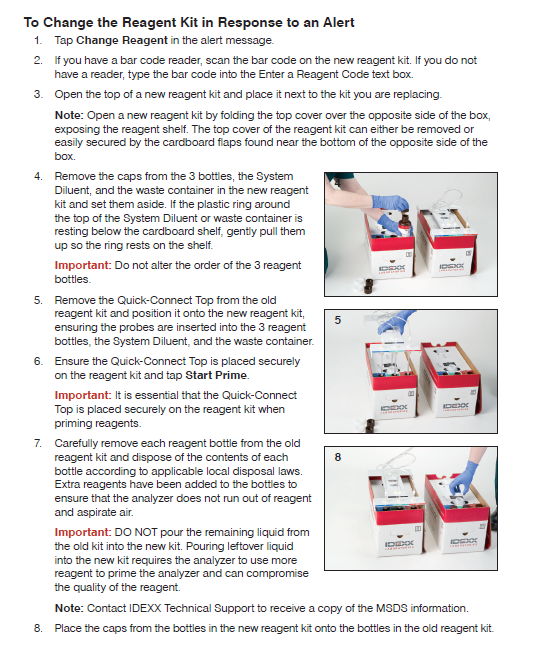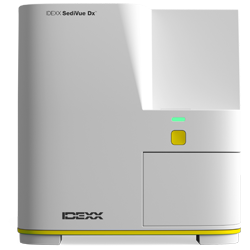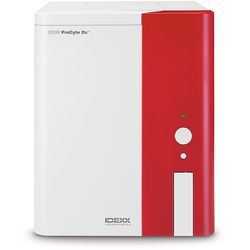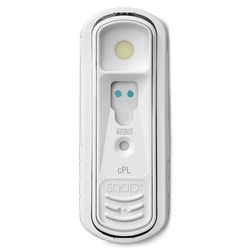
In-house Analysers support
0203 7887 508
Monday through Friday
08:30 - 17:00
Frequently asked questions
Heparin-treated samples can be used in the lithium heparin whole blood separator except when running feline AST, LDH or CK. Double dosing may elevate the results for these assays in feline samples.
No. The recommended mixing method for the lithium heparin whole blood separator is to swirl the separator 5 times.
If you choose to invert the separator and some blood becomes trapped in and/or around the cap, tap the separator gently on the counter to help release the blood from the cap. The sample volume that is trapped in the cap is not sufficient enough to cause issues with analysing the sample and obtaining results
Dispense 0.6–0.8 cc of whole blood into the separator. You can measure this using the marks on the syringe you are using to dispense the sample, or by filling only to the lowest line on the separator.
IMPORTANT: You must initiate the QC workflow through your IDEXX VetLab Station (not a practice management system) in order for the reference ranges to print.
1. Tap Instruments on the IDEXX VetLab Station Home screen. The Instruments screen displays.
2. Tap the Catalyst Dx tab.
3. Tap Quality Control.
4. Tap the quality control lot number you are using and tap Run QC.
5. Tap the QC information in the Pending list on the Catalyst Dx Home screen and then tap Load.
6. Follow the on-screen instructions for loading the quality control materials and then tap Run.
Once the results are complete, you can view the results using these methods:
- Tap View in the View Results message (this message displays by default when a run is complete) to access the Records: Test Results screen.
- Tap the QC run in the Recent Test Results list on the IDEXX VetLab Station Home screenand then tap View.
- Tap Records on the IDEXX VetLab Station Home screen, select the QC run you want to view, tap View Records, tap the desired test result, and then tap View Results.
It is recommended that samples be run within 30 minutes of collection. If the sample is not being run immediately, cap the separator to prevent sample evaporation.
Lithium heparin whole blood separators should be stored at room temperature with their green caps on. Do not store the separators in direct sunlight or near sources of heat.
The needle should be off when dispensing sample into the separator.
I left my clips/slides out overnight. Will they still be OK?
They will be ok if left at a room temperature for a one-time period of 24hrs. This is as long as they were
stored appropriately when they arrived.
We did not store the slides in the freezer/fridge when they arrived?
They will be ok for a one-time period of 24 hours as long as you received them within 24 hours of them
being shipped (48 hours in total). If you are unsure when they were shipped please contact your
customer support team and they will be able to advise you.
I left my purple topped slides in the refrigerator. Will they still be okay?
They can be left out of the freezer for a one-time period up to 24 hours. We recommend discarding the
slides if they are out of the freezer for more than 24 hours.
You may need to run a dilution.
The lithium heparin whole blood separator provides the benefit of plasma, which can be recovered after its use in the Catalyst Dx Chemistry Analyser and used for your additional testing needs.
If more blood is left in the patient syringe after dispensing the required volume of 0.6–0.8 cc into the separator, the remaining sample can be dispensed into any sample tube as long as the required fill volume is adequate.
Go to the Procyte Manuals and Resources page, and open the Quick Reference Guide.
Smart Flags
The flagging for the ProCyte Dx analyzer signals the user that an abnormal cell or group of cells is present and it cannot be characterized in the normal hemogram.
Asterisk (*)
An asterisk (*) indicates the analyzer is questioning the presence of the cellular population.
Hash mark (--.--)
A hash mark (--.--) indicates the analyzer was unable to return a result for a particular parameter. In either case, a blood film should be consulted. These message flags act as internal controls to remind the doctor that a sample must be examined under a microscope.
No, the SCA2000 analyser does not connect to the IDEXX VetLab Station.
While IDEXX is not an authorized SCA2000 service centre and cannot service these analysers, IDEXX will work with the manufacturer on the customer’s behalf to resolve any warranty- and service-related issues.
IDEXX will offer rebate programs for SCA2000 users to trade up to a Coag Dx Analyser.
The Coag Dx Analyser automatically performs daily internal electronic and temperature quality control testing to verify performance. The analyser also performs a system check every time it is activated and a test is performed.
While many animals can be tested using the Coag Dx Analyser, it has only been validated for the following species:
- Canine and feline species: PT, Citrate PT, aPTT, Citrate aPTT
- Equine species: PT, Citrate PT
Yes. The IDEXX consumable can be used with both the IDEXX Coag Dx and SCA2000 analysers.
Can my SNAPshot Dx Analyzer read the SNAP fPL Test?
Yes. The SNAPshot Dx Analyzer can read the SNAP cPL Test and the SNAP fPL Test.
IDEXX UA Strips are validated for canine, feline and equine urine.
Due to the high number of false negatives in small animals, nitrites have a very limited value in veterinary samples.
The IDEXX UA Strips measure:
- pH
- Protein
- Ketones
- Bilirubin
- Leukocytes
- Glucose
- Urobilinogen
- Blood or haemoglobin
The IDEXX UA Strips can be used only once.
Calibrate the IDEXX VetLab UA Analyser once a week using IDEXX VetLab® UA™ Calibration Strips. The calibration procedure takes less than two minutes. Please refer to the Quick Reference Guide or Operator’s Manual for calibration procedure.
A complete UA includes physical, chemical and microscopic examinations:
- Observation of urine colour and clarity
- Urine specific gravity measured by veterinary refractometer
- Measurement of urine chemical properties (i.e., pH, bilirubin, glucose, occult blood and ketones)
- Microscopic examination of urine sediment
Five percent dextrose typically is used to replace a water deficit, and not to provide calories. Except in very small animals, administration of 5% dextrose (200 kcal/L) cannot be relied upon to maintain daily caloric needs. In cases in which sepsis is a concern or if hypoglycaemia from another cause is present, you can add 100 mL of 50% dextrose (i.e., 50 g) to 1 L of lactated Ringer's solution to create a solution that has 5% dextrose in it. In this situation you are using the dextrose to combat suspected or documented hypoglycaemia.
The subcutaneous route can be used for maintenance needs in small dogs and cats, but it shouldn't be used for patients with acute, severe fluid losses (i.e., patients with evidence of circulating volume compromise). Likewise, this route is not recommended for extremely dehydrated or hypothermic animals that may have considerable peripheral vasoconstriction, which potentially could interfere with absorption of the fluid. Only isotonic crystalloid fluids containing lactate as a base precursor (e.g., lactated Ringer's solution) are recommended for subcutaneous administration. The low pH and high acetate content of some Plasmalyte products and Normosol R may contribute to pain on subcutaneous injection. Five percent dextrose in water typically is not recommended for subcutaneous use because temporary electrolyte imbalance potentially may occur as extracellular fluid equilibrates with the administered electrolyte-free fluid. Lastly, there is some concern that use of dextrose-containing crystalloids subcutaneously could predispose the animal to cellulitis if bacteria are introduced on injection.
We want to hear from you
Please complete the form below and our customer support will answer your questions as soon as possible.




